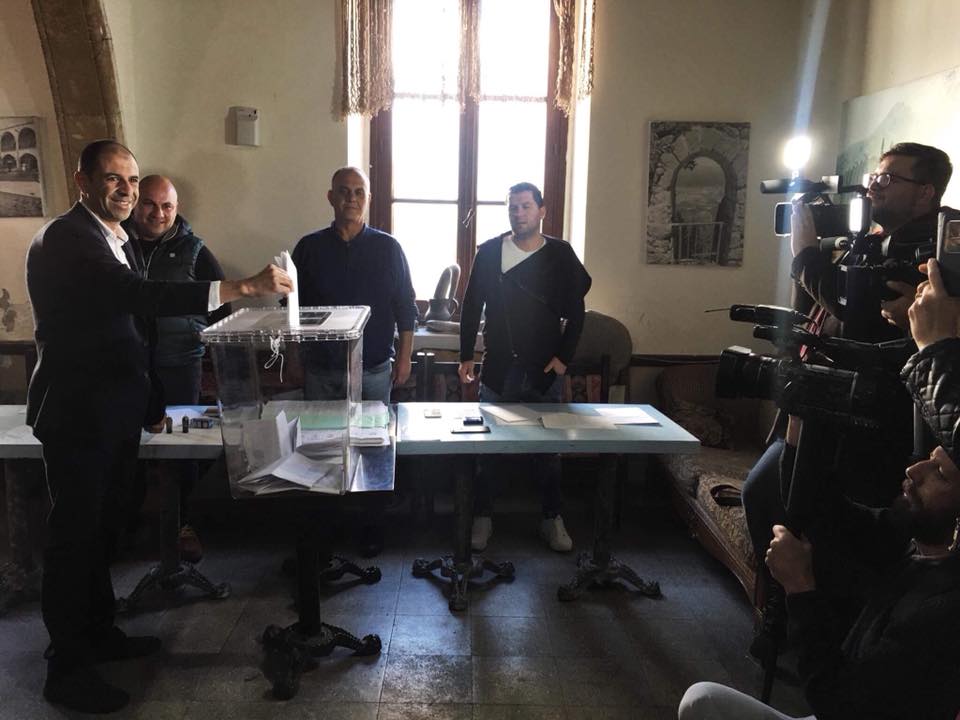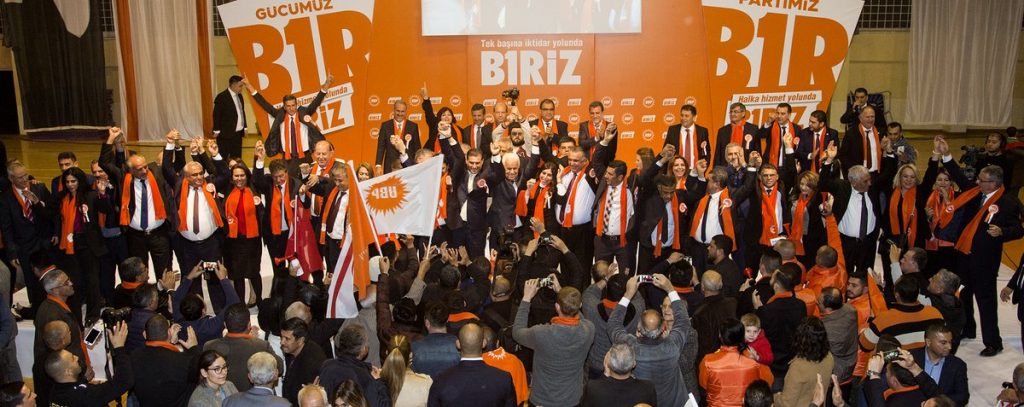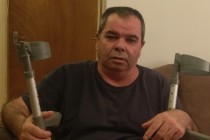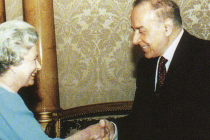The winners of the 2018 General Election in the Turkish Republic of Northern Cyprus have finally been confirmed. The nationalist UBP returns as the largest party, but without enough seats to form a majority, as centrist and right wing political parties take two thirds of the vote. Two new parties will be entering the TRNC Parliament for the first time, while among the notable names to lose their seats are government ministers Kemal Dürüst and Tahsin Ertuğruloğlu.
It took more than 24 hours for the TRNC Higher Election Board (YSK) to release the full election results, which took place on Sunday 7 January. The delay was caused by the complicated new voting system, where voters had the choice of giving a block vote to their preferred party, or to individual candidates in multiple parties, or a mixture of the two.
While broadly speaking, the percentage of votes per party were known in the early hours of Monday morning, it took another 18 hours before the fifty names elected as members of the TRNC Parliament were confirmed.
With all 719 ballot boxes now opened and counted, and having reviewed the full results across six districts, the YSK have presented the following as the official results of the TRNC 2018 General Election:
TRNC 2018 General Election Results and MP distribution
UBP (Ulusal Birlik Partisi / National Unity Party): 35.58% – 21 MPs
CTP (Cumhuriyetçi Turk Partisi / Republican Turkish Party): 20.92% – 12 MPs
HP (Halkın Partisi / People’s Pary): 17.08% – 9 MPs
TDP (Toplumcu Demokrasi Partisi / Communal Democracy Party): 8.64% – 3 MPs
DP (Demokrat Parti/Democrat Party): 7.84% – 3 MPs
YDP (Yeniden Doğuş Partisi / New Birth Party): 7.00% – 2 MPs
TKP-YG (Toplumcu Kurtuluş Partisi Yeni Güçler / Communal Liberation Party): 2.68 % – 0 MPs
MDP (Milliyetçi Demokrasi Partisi / Nationalist Democracy Party): 0.13 % – 0 MPs
Independents: 0.10 % – 0 MPs. They were Çetin Sadeli (3,247 votes), Ayhan Korel (651), Gül Çataloğlu (564), Ali Sanatkar (508), Osman Zorba (487), Cuma Ülker (429), Korhan Ekcan (415), Ashraf Faiq (357), and Cüneyt H. Küçük (293)
Turnout was 66.2%, with 126,196 of a possible 190,553 voters taking part in the elections. The figure is slightly down on the 2013 General Election, where turnout was 69.6%.
Two new parties enter Parliament for the first time: centrist HP and right-wing YDP. Their votes seemed to come at the expense of CTP and DP, which both saw a significant drop in their share of vote compared to the 2013 elections. Between them, right wing UBP and YDP and centre right HP and DP win more than two thirds of the vote.
Controversy reigns over the decision by the UBP-led coalition government to give more than 10,000 people TRNC citizenship over the past two years. The new voters are thought to account for the huge swing to UBP and support for new right-wing party YDP, which wants closer ties with Turkey.
50 MPs elected in TRNC 2018 General Elections
The election results threw up some surprising names who failed to get elected. The biggest scalps were the Transport Minister Kemal Dürüst and Foreign Affairs Minister Tahsin Ertuğruloğlu. Others omitted from the new Parliament include CTP’s Birikim Özgür and Mehmet Çağlar.
However, there are plenty of new faces, such as Fikri Toros, the former President of the Turkish Cypriot Chamber of Commerce, and Kudret Özersay, the former Turkish Cypriot Chief Negotiator and now leader of the People’s Party (HP).

Here are the names of the fifty MPs returned to the TRNC Parliament, listed according to their district and party, and in order of the number of votes they received (most popular in party named first):
Lefkoşa
UBP: Faiz Sucuoğlu, Hasan Taçoy, Hüseyin Özgürgün, Olgun Amcaoğlu, Ersin Tatar, and Zorlu Töre
CTP: Tufan Erhürman, Özdil Nami, Sıla Usar, and Doğuş Derya
HP: Kudret Özersay, Tolga Atakan, and Gülşah Manavoğlu
TDP: Cemal Özyiğit
DP: Serdar Denktaş
YDP: Bertan Zaroğlu
Mağusa
UBP: Sunat Atun, Dursun Oğuz, Oğuzhan Hasipoğlu, Ersan Saner, and Resmiye Canaltay
CTP: Erkut Şahali, Teberrüken Uluçay, and Asım Akansoy
HP: Hasan Topal, Ayşegül Baybars
DP: Fikri Ataoğlu
TDP: Hüseyin Angolemli
YDP: Erhan Arıklı
Girne
UBP: Kutlu Evren, Ünal Üstel, İzlem Gürçağ, and Özdemir Berova
CTP: Fazilet Özdenefe and Fikri Toros
HP: Erek Çağatay and Jale Refik Rogers
TDP: Zeki Çeler
DP: Koral Çağman
Güzelyurt
UBP: Ali Pilli and Menteş Gündüz
CTP: Armağan Candan
HP: Hasan Büyükoğlu
İskele
UBP: Nazım Çavuşoğlu, Önder Sennaroğlu, and Yasemin Öztürk
CTP: Biray Hamzaoğluları
HP: Mesut Genç
Lefke
UBP: Aytaç Çaluda
CTP: Salahi Şahiner
Record number of women MPs enter Parliament
The compulsory requirement for all parties to field at least 30% female candidates paid off, with nine female MPs entering the TRNC Parliament, up from four in the last Parliament. There are three each from the three biggest parties, UBP, CTP, and HP. Women now account for 18% of MPs – the highest it has ever been since Parliamentary elections in the TRNC began.

The best party for female representation is HP, with a third of their MPs women. The smallest parties, DP, TDP and YDP, failed to have any female MPs elected.
Coalition or new election?
With no political party able to form a majority government, a coalition is seemingly inevitable. UBP as the single largest party will be given the opportunity to form the new government. However, with several parties already ruling out working with the nationalists, it could see the TRNC plunged into fresh elections later this year.
Social media has also seen discussions about the need to change the system of governance in the TRNC. Previously unfancied, the Presidential system, which operates in South Cyprus and was recently introduced in Turkey, is becoming a more attractive proposition, as it would alleviate Turkish Cypriots from minority governments and unworkable coalitions, which have been the norm for the past twenty years.
Main photo: UBP pre-election rally, January 2018.




